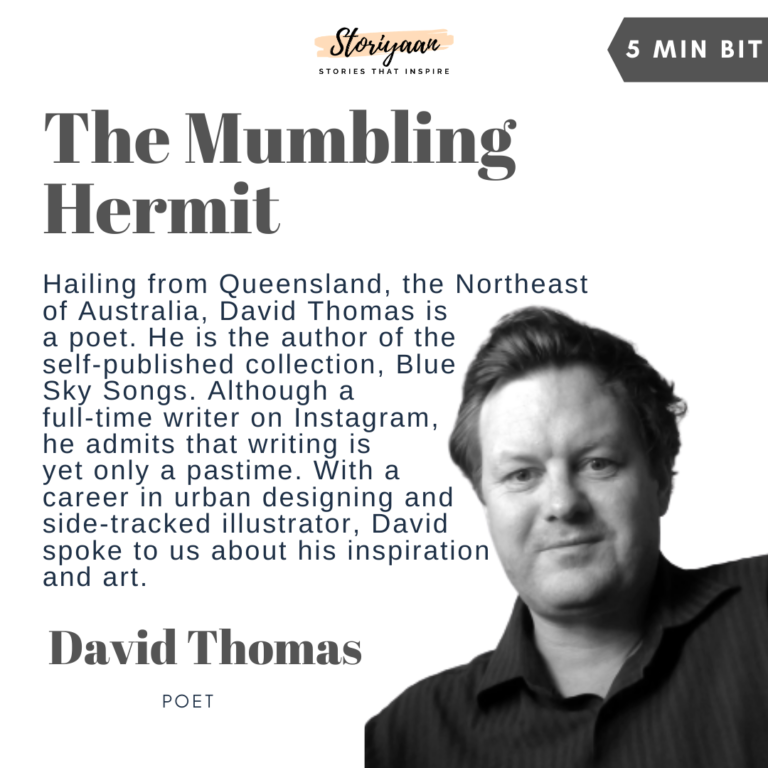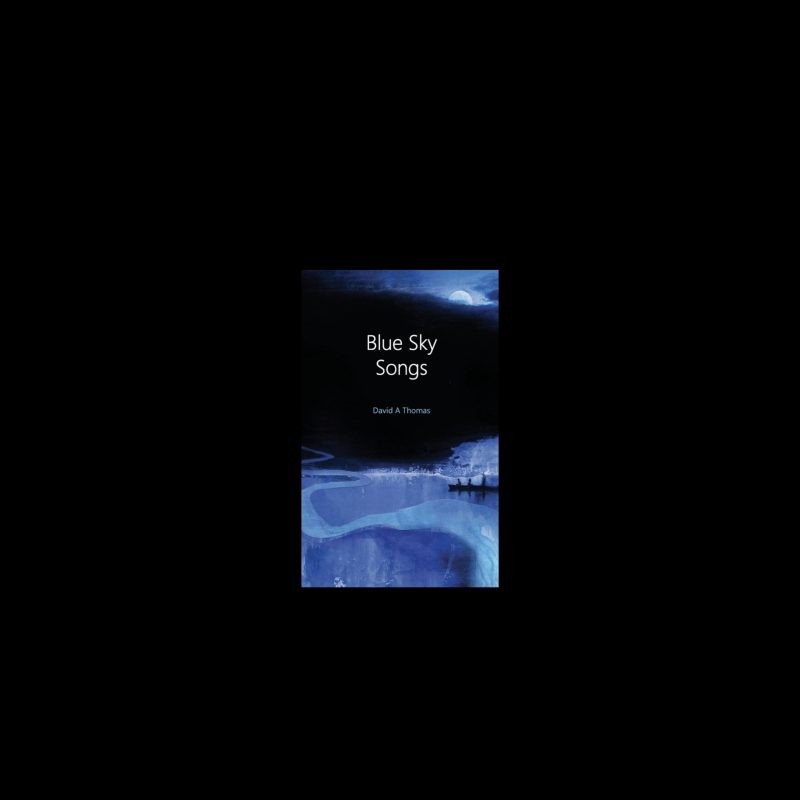Hailing from Queensland, the Northeast of Australia, David Thomas is a poet. He is the author of the self-published collection, Blue Sky Songs. Although a full-time writer on Instagram, he admits that writing is yet only a pastime. With a career in urban designing and side-tracked illustrator, David spoke to us about his inspiration and art.


Interview
Questions and answers
Talk to us about the first time you realized poetry was your calling. Did you always know it, or did it announce itself?
Poetry came to me gradually. First, it was merely a way of looking at the world – an urge to understand what was going on beneath the surface of things. Then, the words rose in an attempt to express somehow what was happening deep in the subconscious. I was in my late teens when I first began writing poetry, but it took me many years to share these writings with anybody else. Later I discovered the poetic masterpieces of the Sufi mystics and the bhakti poets of India, and I was hooked.
Why did you select the name, “The Mumbling Hermit” on Instagram? Is it to maintain a secret, poetic persona/identity?
I’ve always been an introvert and often find myself craving solitude, hence the idea of being a hermit has always appealed. The mumbling aspect is about the difficulties of self-expression. When I first started posting poetry on Instagram, it was still under the shadow of anonymity. Even today, most people who know me have no idea that I write poems.
I re-read Blue Sky Songs recently and couldn’t help but recognize the romanticism under the words. Was it intentional or something that came to you naturally?
I don’t think it was intended – it’s just a reflection of the way that I look at the world. I think romanticism comes quite naturally to most artists and poets. After all, what is life without romance?
Can you talk about Blue Sky Songs? How did it come together, and what is it about in all?
Blue Sky Songs is a personal account of living with depression and discovering a pathway to self-awareness, gratitude, and hope. It’s a collection of poems drawn from many years of writing, so it is somewhat autobiographical, but the reality is interwoven with fiction. I wanted to take the reader on a dreamlike journey from childhood innocence through to the euphoria of first love and the emotional unraveling of loss.
The poems in the book are loosely structured. The book itself has a less rigid form. Is it predetermined? What do you think of it?
Blue Sky Songs is written largely in a free-form poetic style that emphasizes simplicity, symbolism, and spirituality. As a collection of poems taken from journals over many years, I arranged them in four parts to build a loose narrative that would take the reader on a journey. I’m proud of the book – it is a view of my inner world externalized.
The themes of the book are fairly dark, but there’s an undertone of journeys through imagery. Could you talk to us about that?
As I said before, themes of depression and loss do run through the narrative of the book. Ultimately it is a book about seeking an inner truth, which is sometimes a lonely journey. As the great mystic, Kabir, writes, “When my friend is away from me, I am depressed; nothing in the daylight delights me, sleep at night gives no rest, who can I tell about this?”
Which poets do you look up to or read a lot? Do you sometimes think of them when you write?
I am inspired by many things when I write: by nature, by people I’ve met, by snippets of dialogue overheard in conversation. I think the influence of other poets is more subconscious than deliberate. I try to write with my voice rather than mimic others. That said, I do read a lot of poetry and am drawn most to the mystics and the surrealists. Kabir, Mirabai, Neruda, and Amichai are the poets I’ve been reading most of late. Arundhathi Subramaniam and Robert Bly also come to mind.

